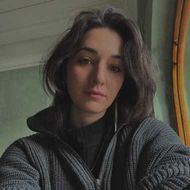Fundamentals of Knowledge Representation
Преподаватель:
Департамент анализа данных и искусственного интеллекта: Профессор
Nowadays knowledge representation systems deal with information representation in a form that a computer can utilize to provide efficient human-computer interaction.
The aim of this advanced course is to introduce students to the most successful logic-based concepts, tools and techniques used today in CS and IT, which are behind the major breakthrough in theoretical and practical applications in knowledge representation systems.
In this course, we address the following issues, which are proven to be of great theoretical and practical potential in CS and IT:
- Knowledge representation and reasoning in a static context. Here predicate logic serves as a universal symbolic language to express the basic constructs such as variables, properties, relations, quantifiers, inference rules of a universal nature, etc.
- Knowledge representation and reasoning in a dynamic context. For transition systems in AI and CS, here we use a language provided by Hoare triples to specify the dynamic correlation between their inputs and outputs, their preconditions and postconditions.
- Knowledge representation: Tractable solutions to generally intractable problems. Notwithstanding that pure predicate logic is generally undecidable, we will discuss efficient algorithms to sort out certain problems of theoretical and practical interest.
This course is new. The course has been designed in accordance with the most recent trends in knowledge representation. The challenge has been twofold:
- to select the material and design the course so that to make it meet the actual needs of the CS and AI applications, and
- to do that so that to allow students to learn and digest all necessary ideas to efficiently accommodate modern trends in knowledge representation.
This course is based on many years of the author’s teaching experience in related subjects at the University of Pennsylvania and Queen Mary, University of London.


